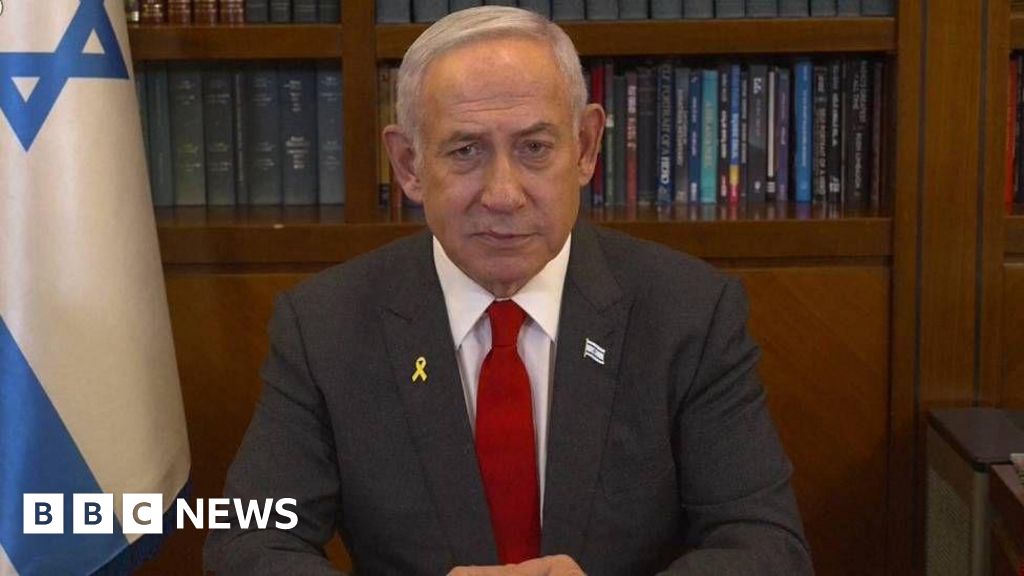“`html

Fact Check Analysis: Did Benjamin Netanyahu Accurately Represent a “Temporary” Gaza Ceasefire?
At DBUNK, we investigate claims for accuracy and context to help you separate fact from fiction. One of our subscribers recently requested a review of the article published by BBC News titled “Benjamin Netanyahu issues warning ahead of Gaza ceasefire.” The claim that sparked their request is the Israeli Prime Minister’s statement that the ceasefire was “temporary” and whether this aligns with the concept and purpose of ceasefires in conflict resolution.

Initial Observations: What the Article Claims
The article extensively quotes Israeli Prime Minister Benjamin Netanyahu, focusing on his warning that Israel “reserves the right” to resume military actions, despite a pending ceasefire deal with Hamas. Published on January 19, 2025, the piece outlines Israel’s conditions for implementing the agreement, its military strategies, and the humanitarian toll in Gaza.
Fact Check Finding #1: Missing Context in Ceasefire Intentions
Netanyahu’s statement that the ceasefire is “temporary” may lead readers to question the intent behind such agreements. While it is true that ceasefires can be temporary pauses in conflict, international norms and precedents for ceasefires emphasize their role in fostering conditions for longer-term peace negotiations. By stating the ceasefire is “temporary” and directly tying it to Israel’s right to resume hostilities, Netanyahu diverges from the broader diplomatic frameworks typically associated with ceasefire agreements.
Moreover, the article fails to address why Netanyahu framed the ceasefire as a conditional pause in fighting rather than as a step toward a permanent solution. This omission prevents readers from fully understanding the broader geopolitical complexities and raises concerns over whether the ceasefire is genuinely geared toward peace or merely a tactical respite.

Fact Check Finding #2: Disputed Numbers and Transparency Issues
The article references casualty numbers provided by Hamas’ health ministry, stating that approximately 46,899 people have been killed in Gaza since the escalation began in October 2023. While such stats are alarming, they originate from a source directly linked to one side of the conflict and lack independent corroboration. Additionally, the piece mentions ongoing Israeli airstrikes killing over 120 individuals in Gaza since the ceasefire announcement without including verification from neutral humanitarian organizations like the United Nations. That context is necessary to ensure an accurate representation of ongoing hostilities.
This selective reliance on sources, without clarifying their biases or corroborating conflicting data, can skew the reader’s understanding of the scale and scope of the conflict.
Fact Check Finding #3: US Endorsement by Donald Trump
In the article, Netanyahu claims to have the “backing of US President-elect Donald Trump” for resuming strikes if needed. It is important to note that Donald Trump remains a polarizing figure and has not officially taken office at the time of Netanyahu’s statements. The phrase “backing by Trump” implies an endorsement that has not been publicly substantiated with direct quotes or actions from Trump’s transition team. Without concrete support, this claim amounts to political posturing that could influence public opinion but lacks verifiable proof.

Reader Inquiry: Why Call the Ceasefire “Temporary”?
To directly address the reader’s question about Netanyahu’s portrayal of the ceasefire as “temporary,” this reflects Israel’s framing of the agreement as a tactical move rather than a commitment to peace. By emphasizing the conditional nature of the ceasefire, Netanyahu seeks to maintain leverage over Hamas and reassure domestic audiences that military action could resume if negotiations falter. However, such framing deviates from traditional ceasefire objectives—building trust, facilitating humanitarian aid, and ensuring long-term conflict resolution.
This strategy could hinder trust-building efforts and the negotiation of a lasting solution, potentially undermining both sides’ willingness to adhere to the terms of the ceasefire.
Conclusion: Partial Misinformation, Missing Context, and Bias Detected
While the article provides a detailed overview of the current situation, it exhibits selective reporting and a lack of critical context. Netanyahu’s assertion regarding the “temporary” nature of the ceasefire lacks explanation about its deviation from standard practices, and casualty figures remain contested without independent verification. Additionally, assertions about Trump’s backing are unsubstantiated, representing another area of potential misinformation.
We encourage readers to critically analyze claims made within the article and seek additional corroborative sources. For those looking to stay ahead of such narratives, download the upcoming DBUNK app to ensure access to thoroughly verified, unbiased news at all times.
Read the original article on BBC News: https://www.bbc.com/news/articles/cp8qyq24qljo
“`

